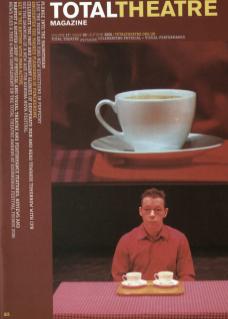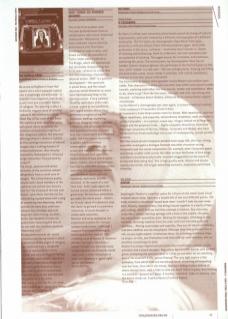We arrive at Brighton's Town Hall square via a mock passport control into a charmingly surreal scene – a traveller's encampment, with a van, a yurt-tent and a resident family of refugees. The opening creates a brilliantly warped sense of another culture in the celebration of the Feast Day of Our Lady of the Bears. The repeating bear absurdity works with great charm to portray the madness and precious fragility of this imaginary culture: the hilarious offering of bear's cheese is typical of this cunning interaction of absurd images and a tickling humour of cultural alienation. Was the play inspired by Shakespeare's infamous stage instruction 'Exit pursued by a bear'? The visual, physical and verbal elements of the narrative radiate delightfully from a small core of images. This is how theatre poetry should work! Some members of the audience are invited into Ursula's tent for 'The cinema of the lost and found’, and others into the van for storytelling washed down with a swig of something heart-warming, while outside the main play continues without loss of tempo and with exquisite comic timing, as when Grilho (Jon Beedell) finishes his pantomimic mourning of the loss of his son with the mundane question 'What time is it?'. Strong performances all-round created a convincing world in which exploration of the plight of refugees was combined with a delightful sense of dysfunctional family culture and very un-English feelings of volatility and warmth. Agnieszka Blonska's tremendous energy and vivacious performance as Krusza was nothing short of sensational – from her entry to the end she held the audience in her palm. One needs to see The Miracle Show more than once to get it all – I hope I do get that opportunity.

